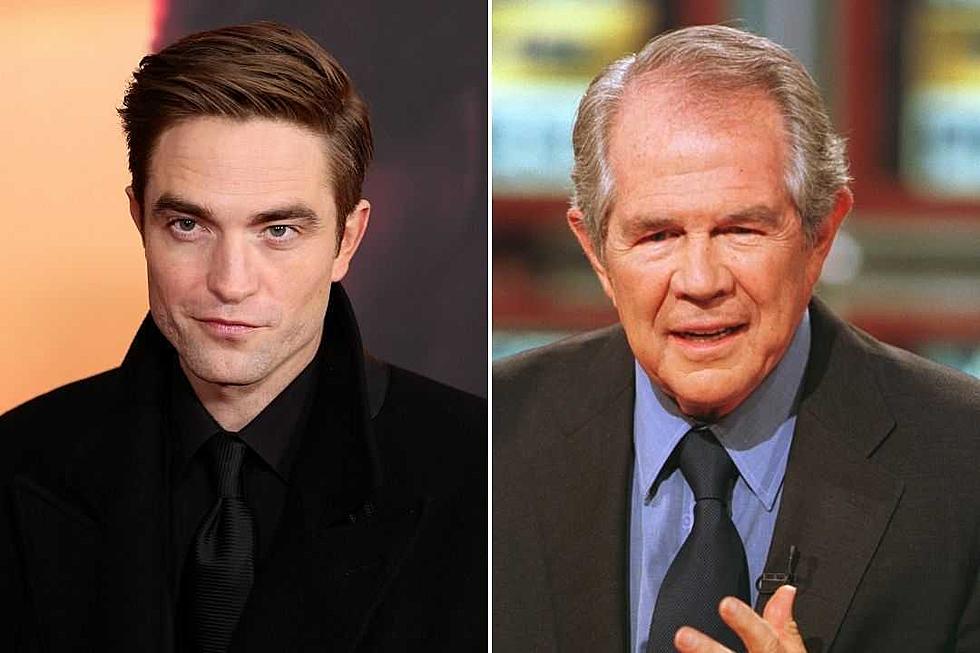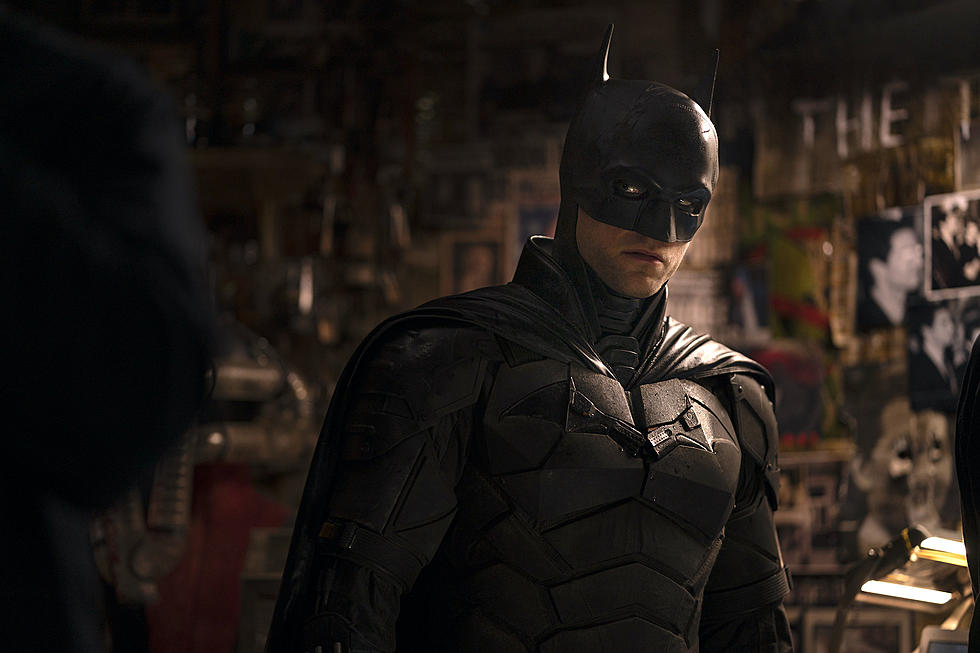
‘The Batman’ Ending: What It Means For DC’s Future
The following post contains SPOILERS for the ending of The Batman. Lots of spoilers. Do not read this until after you’ve seen this movie. In fact, maybe see it a second time first just to be totally safe.
All through the production of The Batman, Warner Bros. and people involved with the film claimed that Barry Keoghan was playing “Officer Stanley Merkel,” Jim Gordon’s partner and “one of the only honest cops at the GCPD.” But in the final film, Jim Gordon doesn’t have a partner. There are one or two other honest cops on the GCPD, but Officer Stanley Merkel isn’t among them. In fact, Barry Keoghan never appears onscreen as Merkel or anyone else in The Batman. When the final credits on the movie roll his name appears listed as “Unseen Arkham Prisoner.”
If you’ve seen the film, you know who that is — and you probably have a very good sense who that is supposed to be. The Unseen Arkham Prisoner is the guy that Paul Dano’s Riddler speaks to in his final scene of the film. After his plan to drown Gotham City and kill its new mayor with an army of anonymous trolls recruited from the internet fails, he’s thrown into Arkham Asylum. From his cell, the unseen (Arkham) prisoner next door says “One day you’re on top, the next you’re a clown.”
He also tells the despondent Riddler “Don’t be sad; you did so well! And you know Gotham loves a comeback story.” The Riddler asks the friendly sociopath who he is and he responds “Well, that’s the question isn’t it? Riddle me this: The less of them you have, the more one is worth.” Riddler says “A friend.” And then the guy in the cell next door laughs and laughs.
I think we all know what this means: Barry Keoghan is the new Condiment King.
Okay, okay; clearly Keoghan is meant to play the Joker in the world of The Batman. If they were any less subtle about it, he’d be dancing around in a purple suit screaming “Where does he get those wonderful toys?!”
Some viewers are wondering why The Batman they went this route; strongly hinting at the character’s presence without ever showing him clearly onscreen. Director Matt Reeves and The Battman creative team have yet to discuss that scene in detail in interviews, but even without any on the record comments there are a few assumptions that are safe to draw here.
For one thing, we know for sure that The Batman is the start of a whole new Bat-centric cinematic universe. While a movie sequel hasn’t been officially announced, Warner Bros. is already working on two different television series set in the film’s version of Gotham City. The first will be focused on the members of the Gotham City Police Department, while another is centered on Colin Farrell’s hilarious rendition of the Penguin. Those shows are going to need more characters. Even if The Batman 2 doesn’t happen for a while — or never happens at all — Keoghan’s Joker could wind up becoming a key character on one or both of the HBO Max series.
As for why Reeves didn’t show Keoghan on camera if he has big plans for him, I think the main reason is flexibility. Revealing this new Joker now locks in his look for years to come. Leaving him unseen means that if Reeves doesn’t return for another Batman movie, or decides to become less involved with those HBO Max shows, whoever does assume creative control gets to decide what his or her new Joker looks like. And if for some reason Keoghan can’t come back either, then you don’t have to explain why a different actor is playing the role because no one saw who it was in the first place.
Plus, modern audiences love when comic-book movies end on a clear but slightly open-ended tease of things to come. Here, there’s no question who Keoghan’s supposed to be playing. But by not showing him you leave fans a lot of room to speculate. For example: While Keoghan’s prisoner is meant to suggest the Joker, it’s not clear from his dialogue whether he’s just a mentally ill criminal or a full-fledged supervillain with chalky white skin and green hair.
Just as Jack Nicholson played Jack Napier and then turned into the Joker in 1989’s Batman, Keoghan could first portray the crook who eventually becomes the Joker after he’s dropped in a vat of chemicals or is treated unkindly by Robert De Niro. Or if Reeves wants to skip the origin story and go straight into full Joker mode, he can do that too. This ending is concrete enough to tell fans what they want to do, but vague enough to leave the story with a bunch of different directions it could go.
It also leaves fans with stuff to talk about after the film is over. How did Keoghan wind up in Arkham? Has he met Batman before? Will the next film be a Riddler/Joker team-up? Questions like that keep fans engaged between installments of a cinematic universe. and give the studio a built-in justification for a sequel. So it’s not a matter of what the answers are, it’s where and when will we see them.
Watch our full video breakdown of The Batman’s final scenes:
The Batman: The Coolest DC Easter Eggs

More From 92.9 NiN










